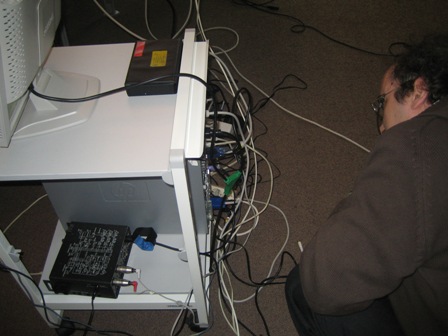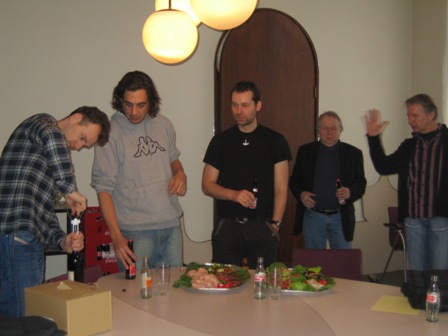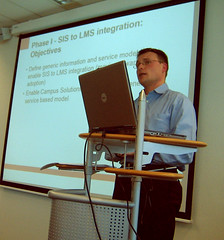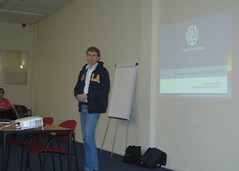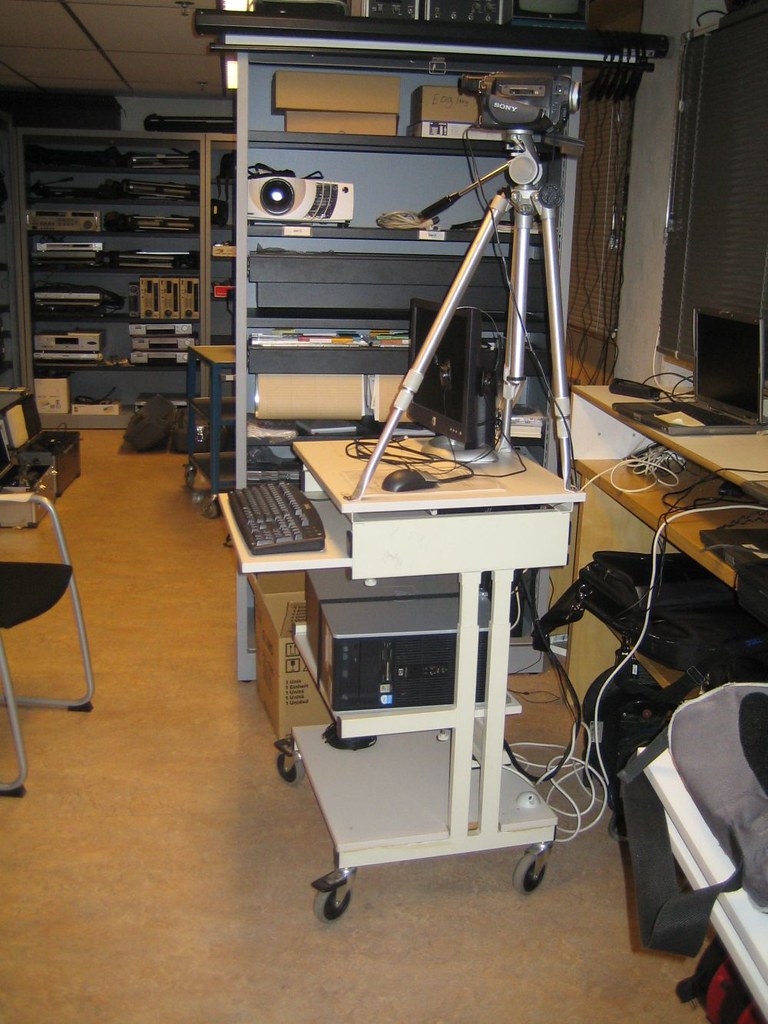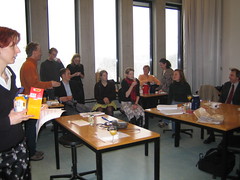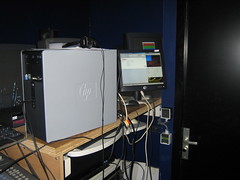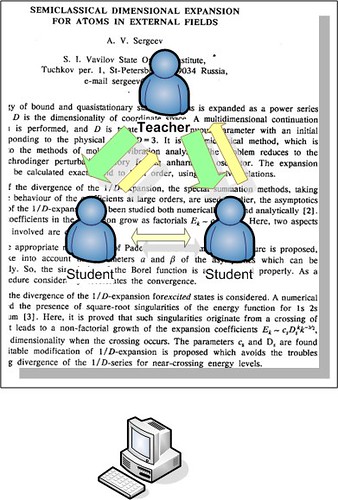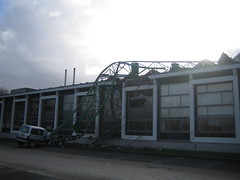
Back in December was the big day: I got my Asus Eee in the post, all the way from Taiwan. It isn't on sale in The Netherlands yet. It really is tiny. I have dropped it in my bag and forgotten it was there. The keyboard is not a problem, it just takes some getting used to. The screen could be bigger, but is quite reasonable for most websites. The storage is not very large, but who cares if you can push in an SD card, which neatly disappears in the slot and can stay in there when you move it about. The webcam is straightforward but works a treat. The Skype has been updated and quite probably should work with the webcam, nobody has skyped me yet, so if there are any volunteers?
Sadly the built in webcam capturing software seems to work, but the outputted video (.ogg format) doesn't make sense, it is far to long and slow.
The big bonus is that it truly works out of the box with its built in Open Source software. If all Linux was this easy a lot more users would be using it. Out of the box you get a browser, a mailclient, messaging software, skype, open office antivirus, video and audioplayer, picture manager, a number of games (some of them educational) and some other things. The drawback is that it does take a little puzzling to get other programs running. For example: I am have trouble getting our university vpn installed. A commercial party has finally decided to offer a computer running on open source software preinstalled. It is certainly easy to get started with.
One of the reasons I have not got round to writing this earlier is that everybody kept grabbing it out of my hands. Especially the kids are great fans. They love it for its small size, all the built in games and Pidgin messenger. it has already featured on Wilfred and Pierre's Blogs and already has found its way to Flickr...




















